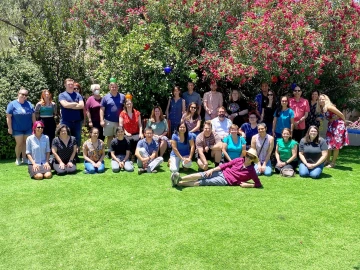
The department of Molecular & Cellular Biology at the University of Arizona is a vibrant community whose teaching and research mutually guide our quest for knowledge about life. Our research spans a vast range of scales that focus on the organization, regulation and networking of key molecules and cells to understand their origins, evolution and function. We investigate biomolecular machines, genetic mechanisms of cellular behavior, complex tissue organization and the evolution of life itself. To perform these investigations, we harness the power of cutting edge molecular, cellular and computational techniques to build fundamental insights. This knowledge is then translated into a deeper understanding of aging and diseases such as cancer and neurodegeneration. We are also deeply engaged in the education of future scientists, health professionals and educators through innovative teaching that includes collaborative classrooms and extensive student involvement in research. Our diverse and welcoming culture make us an intellectual hub within the University and the greater Arizona community. Together, our faculty and students are inspired to learn about and contribute to the accelerating science of biology, from its smallest to largest scales.
We invite you to explore our Research Section for more information about specific research topics and our People Section for more information about individual faculty.
Watch science lectures by MCB Faculty at a variety of venues, including Science Cafes and UA Science Lecture Series.
MCB awards approximately 150 Bachelor's degrees each year. We also direct the Undergraduate Biology Research Program (UBRP), which funds undergraduate research and scientific career development throughout the University and the BIOTECH Project for high school outreach. Our NIH Training Grant, one of only 50 programs in the country, includes over 50 faculty trainers across the University of Arizona.

